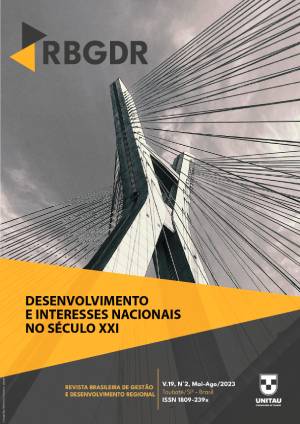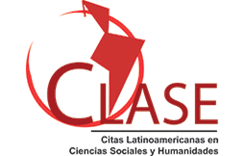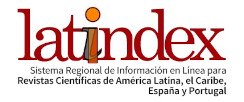AVALIAÇÃO ECONÔMICA DE PRODUTOS INVISÍVEIS: CASO DOS PRODUTORES E COLETORES DO FRUTO DE BACURI DA MESORREGIÃO MARAJÓ, AMAZÔNIA ORIENTAL
DOI:
https://doi.org/10.54399/rbgdr.v19i2.6570Keywords:
Desenvolvimento Regional, Recursos Naturais, Extrativismo, Bacurizeiros, BioeconomiaAbstract
This article seeks to carry out an economic evaluation of production systems with a focus on extractive and managed collection of bacuri fruit in selected properties of small producers in the Mesoregion of Marajó. The research was carried out in the municipalities of Soure, Salvaterra, Cachoeira do Arari and Ponta de Pedras. The methodological procedures were based on a quali-quantitative analysis. Semi-structured questionnaires were applied to 52 small bacuri producers. According to the results, most of the interviewees have areas smaller than 1 hectare (ha) (55.8%), which configures the greater use of small areas and the mini-foundry process that is taking place in the Mesoregion of Marajó. As for the typology of production systems, 5 types were found: bacuri and roça; bacuri and fruit trees; bacuri and fishing; bacuri and pigs; and bacuri and social benefits. The production systems attributed to the group of bacuri and fruit trees obtained an Added Value of R$ 21,471.29/year. The group based on social benefits reached the lowest value for Agricultural Income, totaling R$ 3,281.83. It was observed that in the bacuri and garden production system, the annual contribution from the sale of bacuri and pulp to agricultural income was 32.0% and 15.0% for total income. In relation to the group of bacuri and social benefits, this participation was 94.0% and 17.0%, respectively. Therefore, the system defined as bacuri and fruit trees, is the one with the greatest economic return for small producers, due to diversification in the production and sale of fruit and pulp.
Downloads
Metrics
Downloads
Published
How to Cite
Issue
Section
License
Copyright (c) 2023 Revista Brasileira de Gestão e Desenvolvimento Regional

This work is licensed under a Creative Commons Attribution-NonCommercial 4.0 International License.
Authors who have their papers accepted and published in the Brazilian Journal of Regional Management and Development must agree to the copyright policy CC BY https://creativecommons.org/licenses/by/4.0/.
If the article is accepted for publication, the copyright is automatically assigned to the Brazilian Journal of Regional Management and Development.


















